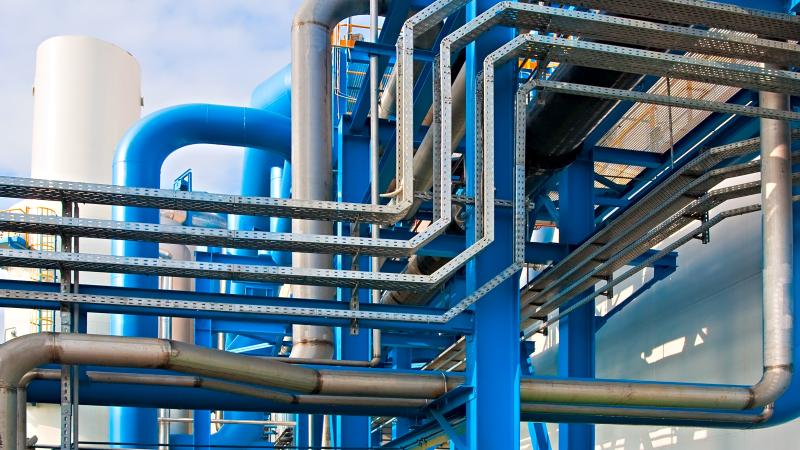June 26, 2019

Engineers from Rensselaer Polytechnic Institute are about to start work on two large-scale collaborative projects aimed at increasing competitiveness and sustainability in steel and industrial gas manufacturing.
These efforts are two of 10 across the country funded in 2018 with nearly $10 million from the U.S. Department of Energy’s Clean Energy Smart Manufacturing Innovation Institute (CESMII). The public-private partnerships are linking research institutes with industry leaders to come up with solutions that can readily be implemented. Rensselaer has a longstanding relationship with CESMII, through the regional manufacturing center the Institute hosts.
Wayne Bequette, professor of chemical and biological engineering, is leading the effort from Rensselaer. His area of expertise is in automation and control, so he and his team will focus specifically on using measurements throughout the manufacturing process to make sure optimal conditions are being maintained. When they aren’t, his team will come up with ways to improve process operations so that resources and energy aren’t being wasted.
“There is a blossoming ‘industrial internet of things’ with the potential to provide data from many sources in real-time. We’re developing “big data” based techniques, including artificial intelligence and machine learning, to improve the operation of these manufacturing systems to ultimately reduce energy consumption,” he said.
In collaboration with the project leaders at Texas A&M, Bequette and his team will focus on air separation — a process that relies on extremely cold temperatures to separate things like liquid oxygen and nitrogen.
“You need intense refrigeration in order to create liquids and to separate them out. That’s a major consumer of electricity in the U.S.,” Bequette said.
To increase efficiency, the Rensselaer team will help develop a system of sensors and algorithms that can reliably alert operators to faults, or inefficiencies —like a change in temperature or pressure — and then help make decisions to optimize performance.
That project brings together experts from multiple universities and industry, including Praxair, a gases company.
Steel manufacturing is another big consumer of energy. Similar to the air separation project, Bequette and his team will focus on sensor measurements and then come up with mathematical models to increase efficiency and improve reliability.
“It’s taking measurements, making decisions on things like the firing rates of furnaces, and processes like that,” Bequette said.
That project is being led by ArcelorMittal, a steel manufacturing company.
Both projects are scheduled to last two years.